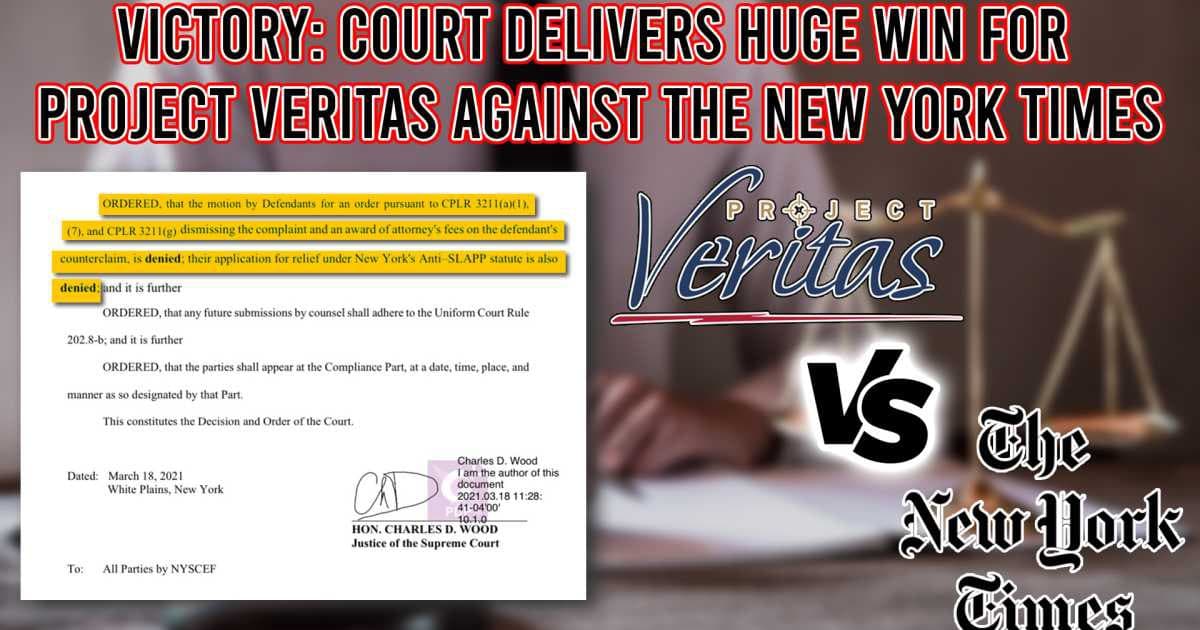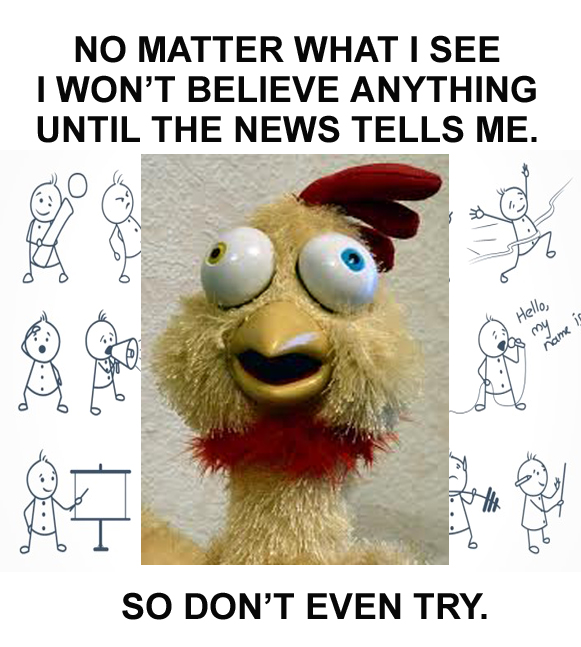
On Friday, a New York Supreme Court justice gave The New York Times a verbal backhand in a decision that could have long-term ramifications for the type of yellow journalism the Times and other mainstream outlets have increasingly used against conservatives in recent years.
According to The Epoch Times, New York Times authors Maggie Astor and Tiffany Hsu likely spread false accusations and claims about Project Veritas, a non-profit investigative journalism organization.
“It stands to reason that if a writer interjects an opinion in a news article (and will seek legal protection as opinion), the writer should have an obligation to alert the reader, including a court that may need to determine whether it is fact or opinion, that it is opinion,” Wood wrote in a 16-page decision denying the newspaper’s request to dismiss a lawsuit from Project Veritas.
“The Articles that are the subject of this action called the Video ‘deceptive,’ but the dictionary definitions of ‘disinformation’ and ‘deception’ provided by defendants’ counsel certainly apply to Astor and Hsu’s failure to note that they injected their opinions in news articles, as they now claim,” he writes.
The Epoch Times went on to say:
Project Veritas claims that five articles in question contained false and defamatory information. All five were about a journalism group’s 2020 video report on alleged illegal voting procedures in Minnesota.
“Mr. O’Keefe and Project Veritas have a long history of releasing manipulated or selectively edited footage purporting to show illegal conduct by Democrats and liberal groups,” Astor wrote in one of her articles. According to the judge, the source of the statement and whether it is fact or opinion is unclear.
Meanwhile, Hsu wrote that conservative publications “magnified the reach of a deceptive video released last month by Project Veritas, a group run by conservative activist James O’Keefe,” adding that “the video claimed without named sources or verifiable evidence that the campaign for Representative Ilhan Omar, a Minnesota Democrat, was collecting ballots illegally,” among other things.
“Stating in a factual way in a news article that the video is ‘deceptive’ and ‘without verifiable evidence’ certainly presents the statement as fact, not opinion,” Wood wrote in his decision.
Furthermore, the legal team for the New York Times argued that their authors substantiated their use of the terms by consulting fact-checking websites and other media outlets such as Fox News and the Washington Post.
However, the judge did not appear to accept that argument.

If You Dare To Have A Different Opinion That Makes Sense, Your Branded A Conspiracy Cook And Called Names For Having The Ability To Think For Yourself. Calling People You Disagree With Names Should Tell You All You Need To Know.
No Dialog Just Name Calling! This Is Not The Way To Communicate Anything. You Have No Respect For The Other Person Period!
I Know It Is Not Possible For You To Be Mistaken, So It Has To Be Me! Got It!






0 Comments